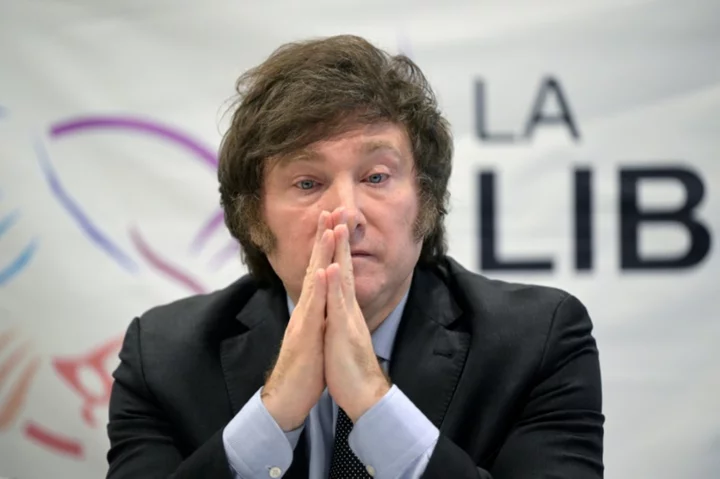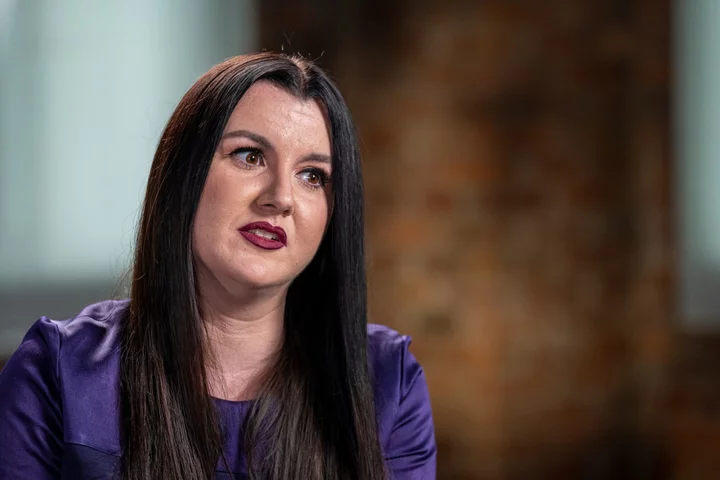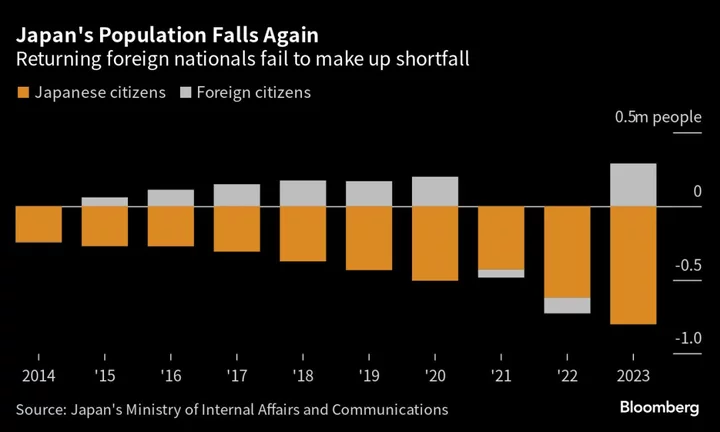Argentina's President-elect Javier Milei has offered glimpses into how his seemingly contradictory spiritual practices -- including a recent embrace of Orthodox Judaism, the Catholicism embedded in Latin America and his own far-right philosophies -- influence his idiosyncratic worldview.
The 53-year-old economist, whose inauguration is set for December 10, has frequently referred to both his study of the Torah -- the Jewish scripture which is also the first part of the Christian Bible -- and his identity as a Catholic.
Milei has said he believes in God -- whom he insists is a "libertarian" just like him -- and claims his preferred brand of "anarcho-capitalism" is in fact the natural order of the world.
When he was inaugurated to the legislature in 2021, Milei took the same oath of office as all Argentine politicians, invoking "God, country and the holy Gospels" of the Christian faith.
That was also around the time Milei first met Axel Wahnish, an influential Sephardic Orthodox rabbi from Buenos Aires, whom the president-elect consults regularly and says helps him "understand the situation in a deeper way."
- Keeping Sabbath as president? -
"The rabbi who helps me study says that I should read the Torah from the point of view of economic analysis," Milei told El Pais newspaper in July.
He has also expressed appreciation for the back-and-forth analytical format of Jewish law, as outlined in the Talmud.
Despite this enthusiasm for Jewish thought, Milei has remained non-committal about the prospect of converting from the Catholicism he was raised in.
"If I am president (on the) Sabbath... what do I do? Disconnect from the country from the first star (in the sky) Friday until the first on Saturday?" he asked.
"There are some issues that would make that incompatible," he explained, though not all Jews strictly observe the custom of avoiding technology and work on the Sabbath.
And in September, Milei told La Nacion channel, "I don't go to church, I go to temple. I don't speak with a priest, I have a rabbi. I study the Torah. I am recognized internationally as a friend of Israel and Torah scholar."
So much so that for his first trip abroad since being elected president, Milei last week flew to New York, where he visited the tomb of a revered Lubavitch movement leader -- a popular spiritual pilgrimage destination for some Jews.
Will he convert to Judaism? "I am very close," he said.
However, a close contact of Milei's -- Tomas Pener, who introduced the politician to Wahnish's community -- said the president-elect has no real plans to convert right now.
"Currently he is not in a conversion process," the 24-year-old told AFP Tuesday.
"He became interested in the studies. He is not going to make any political decision based on the Torah. For him, studying the Torah is purely spiritual, about interest in knowledge," Pener said.
Milei attended Catholic school, and maintains he has always believed in God, but says that growing up he was uninterested in religious classes, dismissing them as a "burden."
- Amends with Francis -
A 1994 constitutional reform ended the requirement that Argentina's president be Catholic, though 75 percent of the population still identify with the religion. And the country's Jewish community, at 250,000, is one of the largest in Latin America.
Milei has presented himself politically as an ally to Israel, open to moving Argentina's embassy from Tel Aviv to Jerusalem. The likely foreign minister for his upcoming government, Diana Mondino, has said a switch is not immediately likely given Israel's war with Hamas.
According to political analyst Carlos Fara, Milei's openness about his spirituality is "an atypical situation in Argentine politics, something totally foreign to tradition."
In contrast to Milei's other controversies -- he has questioned the official toll of disappearances during Argentina's military dictatorship and brought a chainsaw to campaign rallies -- his stance on Israel has not caused a stir, Fara said.
Still, his focus on the issue could generate concern among what Fara called a "quiet" Argentine Jewish community.
Already Milei is no stranger to religious drama; before his election, he referred to Pope Francis -- himself from Buenos Aires -- as "the evil one," "nefarious," and an "imbecile" who "promotes communism."
The two seemed to reconcile when Francis called to congratulate Milei on his win this month, and Milei invited the pope to come visit his native country, which he has not returned to since becoming pontiff in 2013.
"I told him that he would be welcomed with all the honors of a head of state and the spiritual leader of Argentines, because Catholicism is the majority religion in Argentina," Milei said of the conversation.
nn-pbl/ll/lbc/caw/mlm









